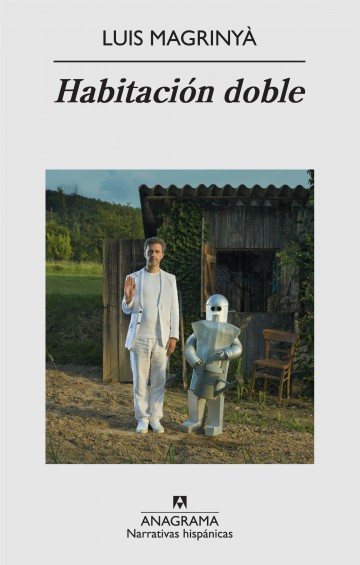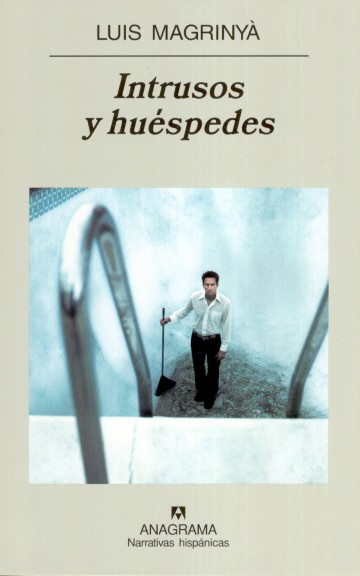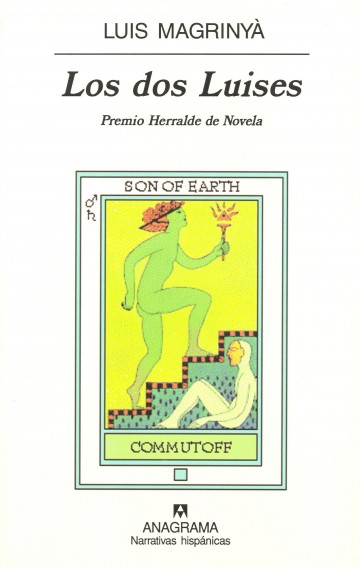| PAGES | 312 |
| SERIES | Narrativas hispánicas |
| PUBLICATION | 28/04/2010 |

SERIES:Narrativas hispánicas
One morning an aging editor crosses the street and, as he puts out his cigarette on the floor, a spark flies out and hits a baby’s head. Ten minutes later, facing a judge who wants to buy his house, he is filled with doubts. An electrician on a cruise down the Nile collects pieces of carpet, stones and rubber rings to create an installation about his worthless existence. Sixteen years later, a journalist is sent to Amsterdam to meet an old boyfriend, who has just been raped. A little over a year later, a drug dealer in trouble escapes to a place where an unemployed and depressed friend of his is hiding out. On July 12th 2009 some French people are travelling on the motorway to Paris, discussing the anxiety of not being able to recognise potential suicides. Just afterwards, a nervous father wonders why he is so attracted to serial killers and looks for answers in the memoirs of the father of the Milwaukee Butcher. Narrative threads cross and join in Magrinyà’s work: fathers and sons, cunning jobs, artists with complex psychologies... The reader gets on to a train travelling at full speed, without knowing where it has come from and where it is going. A train that will pass through ramshackle stations, where abandonment, darkness and fun become creative and moving acts in themselves.
«A fabulous and original literary artifact. If you want to read a contemporary author with the ability to write with the linguistic precision and taste of an old master, then take a look at Magrinyà’s latest» (Manuel Rodríguez Rivero, El País).
«Habitación doble is one of the literary events of the year» (Tino Pertierra, La Nueva España).
«Luis Magrinyà is very cool» (Antonio José Rodríguez Soria, Quimera). «A delicate and surprising book» (Ignacio Echevarría, El Mundo).
«A splendid book… Beautifully written and unusually elegant» (Ana Rodríguez Fisher, El País).
«A house of tales full of twists, shadows and light-filled spaces where, to avoid being lost, you have to leave the mental map of the novel to one side and start experiencing its diverse treasures one-by-one: like the journeys to the Nile, to Amsterdam and a comic scene that reminded me of the Cukor classic Dinner at eight» (Vicente Molina-Foix, El País Madrid).
«Magrinyà deconstructs the varied range of discourses that describe the world, to make them more manageable. He explores a long variety of insecurities, behaviours and thought processes that go beyond the love of classification that regulates human conduct. The subtlety of his perspective is clear: the current times are as extraordinary as the Butcher of Milwaukee» (J.A. Rojo, El rincón del distraído).
«Magrinyà confirms the solidity of his literary progress in this new novel… his works reflect a personal sense of humour » (Carmen Rodríguez Santos, Abc).
«There is a very fine irony, close to detachment, within the clichés that we watch being developed …An intellectualized and intelligent perspective» (José María Pozuelo Yvancos, Abc).
«I recommend you take a look at Luis Magrinyà’s new novel, one of our authors who helps us to see the world around us more clearly» (Alejandro Gándara, El Escorpión).
«A disobedient novel… It takes us, with uncomfortable and concentrated curiosity, to a place where we feel, if not at home, then somewhere that we’ve always wanted to go. And that is definitely a journey worth taking» (María José Gil Bonmatí, Kiliedro).
«Magrinyà belongs to that privileged group of conquerors of new horizons. A very appealing book» (Nadal Suau, Diario de Mallorca).
| PAGES | 312 |
| SERIES | Narrativas hispánicas |
| PUBLICATION | 28/04/2010 |
TRANSLATION RIGHTS SALES
- USA (Dalkey Archives)


Luis Magrinyà was born in Palma de Mallorca in 1960 and has lived in Madrid since 1982. After studying Literature and Photography he has worked as a translator, lexicographer and publisher. He is the author of two books of short stories: Los aéreos (1993) and Belinda y el monstruo (1995), which received the unanimous applause of the critics. He was awarded the Herralde Novel Prize in 2000 for his novel Los dos Luises.




